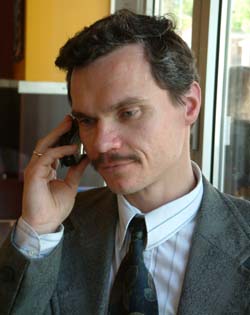Lithuania: Adventist Church Moves Toward Recognition

The Adventist Church was reregistered in 1996 under the independent Lithuanian government, and is able to conduct services and buy property in the name of church officials. Recognition by the state will mean that the church is understood to contribute to the society at large, and that it can offer religious instruction in public schools, as other officially recognized traditional Lithuanian religions do, including Roman Catholic, Greek Orthodox, Russian Orthodox, Old Believers, Lutheran, Reform, Jewish, Karaite and Muslim faiths.
“The only legal difference is the ability to teach religion in the schools; however, there are more subtle differences in how society views registered and recognized churches,” Hibner said.
Already, the Baptist Church has been recognized by Parliament as a non-traditional religion, meaning that it had not existed in the country for as long as the traditional faiths. While all religions have access, for example, to radio and television broadcasting, those that are recognized “tend to have it easier” when it comes to arranging broadcast time, says Hibner.
Under current Lithuanian law–which may change in the near future–churches seeking Parliamentary recognition must do two things. One, they must prove that they have been in the country for more than 25 years–the new law proposes 50 years–and they must have both significant local membership and have made a social contribution to society. A church’s theology cannot call for the overthrow of the state, Hibner noted.
The Adventist Church meets all the current tests, and its history and social contributions are being documented in a report to the Ministry of Justice, which will pass on its verdict to Parliament. Along with that report, being prepared by the chairman of the theology department at Klaipèdos University, Dr. Arúnas Baublys, the church has also met with advisors to the ministry who cover religious issues, as well as with the Parliamentary committee that oversees both church recognition and the drafting of a new law on the subject.
Among other groups seeking parliamentary recognition are the Methodists, the New Apostolic Church and the Pentecostal Church. Hibner said the Ministry of Justice also examines how sustainable a church is from local finances; some groups that depend heavily on outside funding can face difficulty.
As the Adventist Church has been in Lithuania for so long, and thanks to the dedicated work of many members and leaders, Hibner said the church has been consulted about changes to the recognition law, as well as related religious liberty issues.
The government “treat[s] us equally as any other church, and not like a sect,” Hibner said.
Recognition “will make a big difference in the attitude of society,” he said, which differentiates not among denominations, but whether or not a church is recognized by the state. It will also help with land ownership issues, as well as aid in public school instruction for Adventist students.
The church was severely decimated during the years under the Soviet Union. Older church members recall how children were taken away from their parents, as they would not attend school on Sabbath, or Saturday. Adventists lived under a constant threat of being summoned by the authorities and report on their activities. Only 50 church members were left in 1990. Today, the church is nearly 1,000-strong with 13 congregations and several smaller groups organized throughout the country. The largest congregations are in the capital Vilnius and in Kaunas. There are three Adventist congregations in Vilnius–Lithuanian, Russian and Polish. The church meets in a rented hall on Sabbaths, with plans to own a church building soon.
Because Lithuania is moving toward membership in the European Union, and would be on an equal footing with other nations in terms of religious rights laws, Hibner is optimistic that the move will succeed.
He added that the church is seeking to separately register a branch of the Adventist Development and Relief Agency, or ADRA, in Lithuania, and this will also give the church an opportunity to demonstrate to society what it is doing to help people.
“We’re working to change the public’s attitude toward us,” Hibner said. “Most people in Lithuania don’t know who Adventists are. We’re eager to show we’re Christians and have much in common with the other churches, and we’re working to show that we are seeking to do good for society as a whole.”
Copyright © 2003 Adventist News Network.